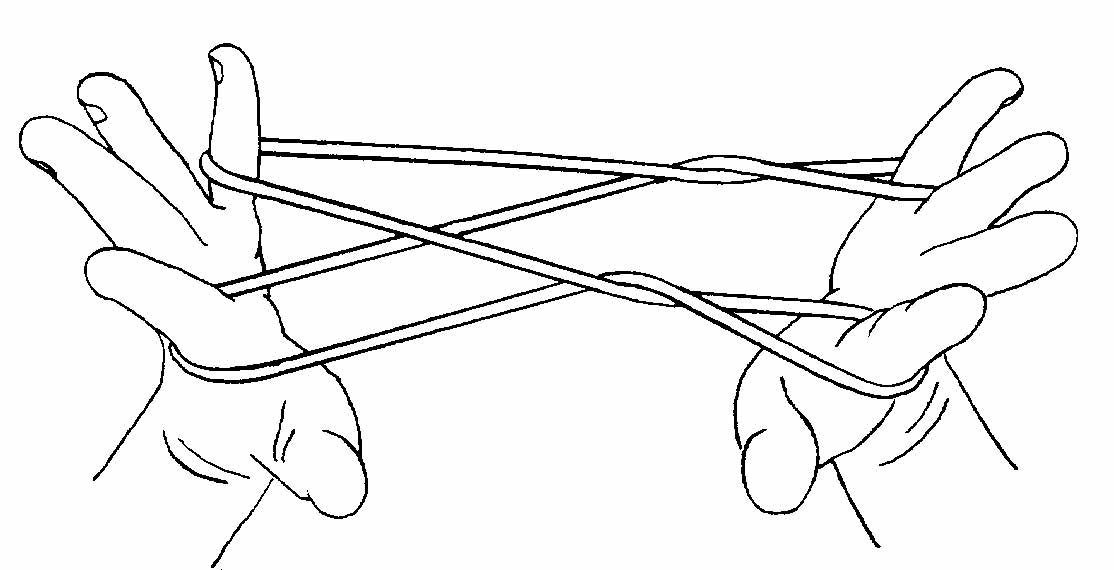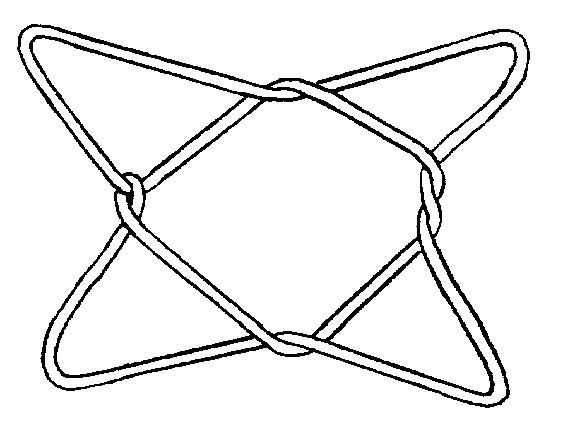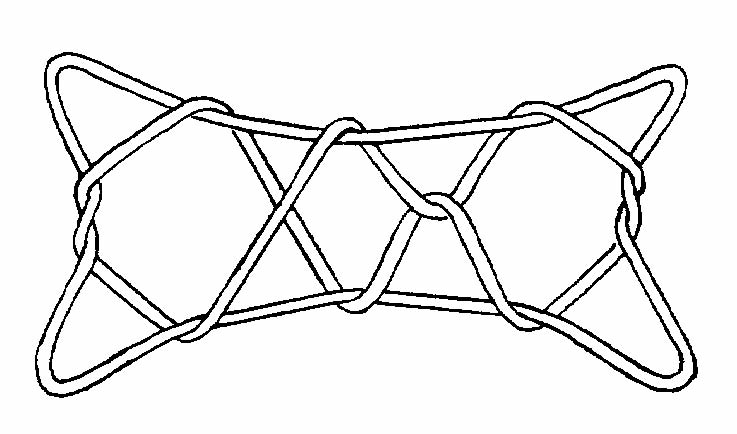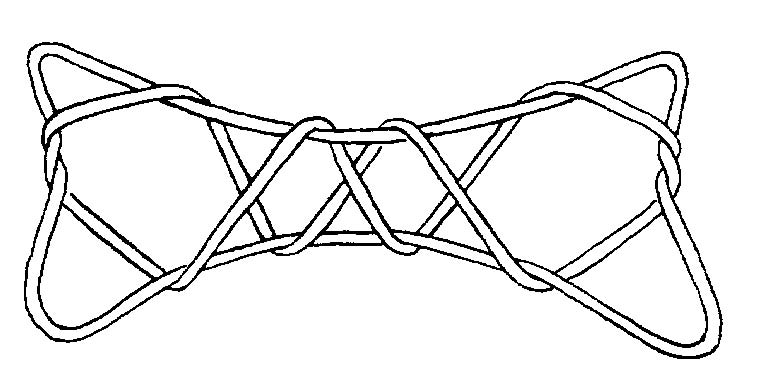one diamond
Loom Phase: same as Osage Two Diamonds
Weaving Phase:
· Bring the hands together, and with
the left thumb and index finger
grasp both strings of the right index
finger loop (near the base of the finger).
Twist the right index finger toward
you, down, away, and back up
to where it started, then let go of the
strings held by the left thumb and
index. In a similar fashion, twist the
right little finger loop a full 360º toward
you.
With your thumbs, reach away from
you, over three strings, and pick up
the fourth string (the far little finger
string) from underneath. Return the
thumbs to their starting position.
Extension Phase: Same as Osage Two Diamonds. The result is One Diamond.
three diamonds
Loom Phase: same as Osage Two Diamonds
Weaving Phase: Same as One Diamond, but twist the left index and left little finger loops a full 360º towards you. Fig. 4 -Three diamonds
Extension Phase: Same as Osage Two Diamonds. The result is Three Diamonds.
four diamonds
Loom Phase: same as Osage Two Diamonds
Weaving Phase: Same as One Diamond, but in addition to twisting the right index and right little finger loops, also twist the left index and left little finger
Extension Phase: Same as Osage Two Diamonds. The result is Four Diamonds.
things to consider
So far you have learned a simple system of making different numbers of diamond figures. The next phase of your learning will entail a similar figure to the osage two diamonds you have now mastered. It is called jacob's ladder by many and sometimes referred to as osage four diamonds. Then you will be ready to learn how to form any number of diamonds.
Variations with Opening B
i also encourage my students to make all of the above starting with Opening B (pick up the right palm string with the left index first, then the other hand).
The results are rather surprising — One Diamond gives Three Diamonds and Three Diamonds give One Diamond (with minor differences in string crossings).



